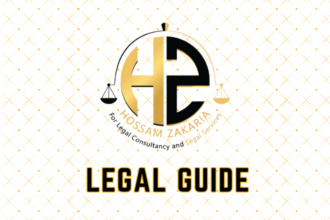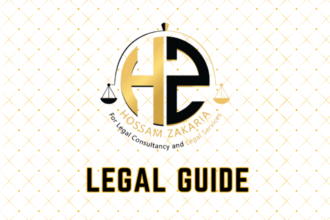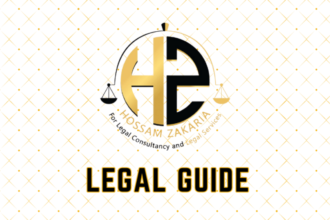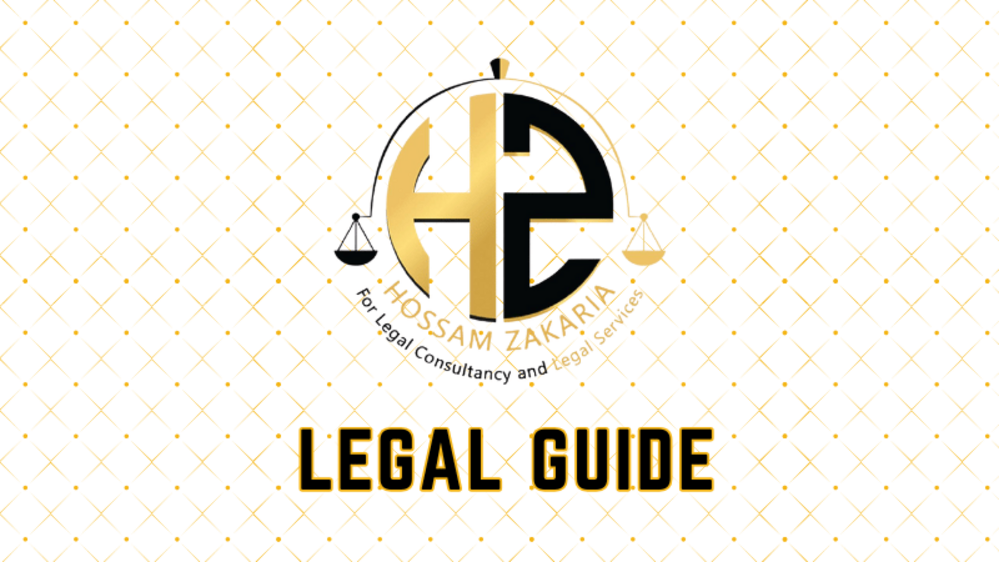Introduction
In the dynamic landscape of technology-driven economies, the integration of artificial intelligence (AI) has become a cornerstone for sustainable growth, innovation, and competitive advantage. The United Arab Emirates (UAE)—a global leader in digital transformation—has reinforced its commitment to responsible AI development and utilization through a robust regulatory framework. Recent legislative advancements, including the proposed AI Regulatory Framework 2025 and associated Federal Decrees, signal a new era of government oversight, licensing obligations, and compliance requirements for entities deploying AI in the UAE. For business leaders, HR professionals, compliance officers, and legal counsels, understanding these changes is now imperative. This article offers a practical legal analysis on the latest UAE AI licensing laws, regulatory oversight, compliance strategies, and actionable guidance in navigating this fast-evolving legal environment.
With multinational businesses increasingly integrating AI across core operations—from HR management to customer experience and manufacturing—the scrutiny around lawful AI deployment has intensified. The UAE government actively promotes innovation but demands responsible conduct and transparency, reinforcing its status as a safe and reputable jurisdiction for cutting-edge technologies. This article delves into the legal underpinnings, real-world implications, and compliance solutions designed for organizations and professionals operating within the UAE’s jurisdiction.
Table of Contents
- UAE AI Regulatory Landscape and Key Legal Instruments
- AI Licensing Requirements Under UAE Law
- Government Oversight and Compliance Mechanisms
- Comparing Previous and Latest UAE AI Legislation
- Case Studies and Practical Examples
- Risks, Penalties, and Enforcement for Non-Compliance
- Strategic Recommendations for Ensuring Compliance
- Forward-Looking Observations and Best Practices
UAE AI Regulatory Landscape and Key Legal Instruments
An Overview of Relevant Laws and Governance Bodies
AI is no longer a theoretical concept. Its impact on business, government services, and everyday life is profound, and accordingly, the UAE has enacted comprehensive laws that govern its deployment. The three pillars of the current AI legal framework in the UAE are:
- Federal Decree-Law No. 44 of 2021 on Data Protection (amended in 2023)
- Cabinet Resolution No. 21 of 2022 on Data Management and AI Controls
- The AI Regulatory Framework 2025 (Proposed)
These laws are complemented by sectoral regulations from bodies such as the UAE Ministry of Justice (MOJ), the National AI Strategy (launched by the UAE Government Portal), and regulatory guidelines issued by the Ministry of Artificial Intelligence – Office of the Minister of State for Artificial Intelligence. Furthermore, the UAE Council for AI and Blockchain plays an advisory role in the oversight of AI initiatives and standards.
Objectives of the Regulatory Framework
- Safeguard public welfare, data privacy, and national security
- Ensure ethical and responsible AI deployment
- Promote transparency, explainability, and accountability in AI solutions
- Foster innovation and trustworthy AI investments
AI Licensing Requirements Under UAE Law
Understanding Licensing and Registration Obligations
Any organization developing, deploying, or selling AI-driven solutions within the UAE must adhere to rigorous licensing and registration provisions as outlined by the latest Cabinet Resolutions and the anticipated AI Regulatory Framework 2025.
Previously, licensing was loosely interpreted, mostly addressing IT or data-centric services. The amended laws now demand a sector-specific license from the UAE Ministry of Artificial Intelligence for:
- Developers and vendors of general-purpose and domain-specific AI applications
- Businesses integrating AI in critical operations (e.g., healthcare, finance, law enforcement)
- Facilitators of AI-based decision-making or automated HR systems involving personal data
Applicants must submit a comprehensive application, disclosing information on their AI models, intended use cases, ethical risk assessments, and data management processes. The Ministry reviews applications for transparency, reliability, and alignment with national strategic interests.
Key Components of the Licensing Process
- Registration: Entities must register their AI systems in a centralized government database.
- Documentation: Submission of technical specifications, compliance matrices, and impact assessments.
- Audit and Inspection: Routine audits and random inspections post-licensing to ensure continued compliance.
- Renewal and Reporting: Licenses are subject to periodic renewal, contingent upon demonstration of ongoing adherence to legal and ethical guidelines.
| Requirement | Pre-2022 | Post-2022 and AI Regulatory Framework 2025 |
|---|---|---|
| Specific AI License | Not always mandatory; often rolled into IT licenses | Mandatory for defined AI activities |
| Government Database Registration | Rarely enforced | Required for all regulated AI systems |
| Ethical Assessment Submission | Not required | Mandatory for approval |
| Ongoing Reporting | Optional, ad hoc | Compulsory; periodic renewal and audits |
Consultancy Insight
Licensed legal consultants recommend that organizations conduct a comprehensive internal review of their AI usage, prepare robust documentation, and proactively pursue licensing before commencement of high-risk AI activities. Failure to comply exposes entities to significant sanctions and reputational harm.
Government Oversight and Compliance Mechanisms
Which Bodies Exercise Oversight?
- Ministry of Artificial Intelligence: Primary AI regulator, responsible for approvals, audits, and enforcement
- UAE Data Office: Joint oversight on data privacy in AI applications
- Sectoral Regulators: Healthcare, finance, education, transport, and defense
- Civil and criminal courts: Jurisdiction in cases of regulatory breaches, disputes, or illegal use
How Oversight Is Practiced
Oversight mechanisms are both preventive and reactive:
- Preventive: Licensing, pre-market approval, risk-based evaluation, and mandatory government approval for high-risk systems
- Reactive: Incident reporting, whistleblowing channels, on-site inspections, and enforcement actions
Interaction with Other UAE Laws
AI licensing requirements are intertwined with broader legal frameworks, particularly the UAE Federal Law No. 5 of 2012 on Combatting Cybercrimes (amended in 2021) as well as the Data Protection Law. Non-compliant AI practices are thus subject to both AI-specific and general regulatory sanctions.
Comparing Previous and Latest UAE AI Legislation
To appreciate the operational impact on businesses, the following table offers a side-by-side comparison:
| Area | Old Regime (pre-2022) | Current Updates (2022-2025) |
|---|---|---|
| AI Licensing | No clear obligation | License required for specific uses; annual renewals |
| Data Protection in AI | Loose alignment | Strict integration with Data Protection Law |
| Risk Assessments | Catch-all IT risk policy | Mandatory AI-specific risk and ethical assessment |
| Enforcement | Rare intervention | Active audit, power to suspend licenses, issue penalties |
Table Suggestion:
Compliance Checklist for AI Licensing in the UAE
| Requirement | Status (Y/N) | Notes |
|---|---|---|
| AI License Application Submitted | ||
| Ethical Assessment Completed | ||
| Data Privacy Controls Implemented | ||
| Government Registration Complete | ||
| Staff Training on New AI Law |
Case Studies and Practical Examples
Hypothetical Scenario: AI in HR Recruitment
Background: A UAE-based multinational launches an AI-powered recruitment platform, using automated screening and facial recognition for interviews.
Legal Risks:
- Potential bias or discrimination in algorithmic decisions
- Collection and processing of biometric data without consent
- Absence of required licensing and registration
Resolution: The firm is required to register its AI solution, undergo an ethical risk review, integrate privacy controls, and secure express consent from candidates. Proactive self-audit enables timely licensing and mitigates government investigation risk.
Practical Example: AI in Financial Services
Background: A fintech company offers robo-advisory services to UAE investors.
Legal Risks:
- Opaque decision-making may breach explainability requirements
- Improper transfer of sensitive financial data
- Non-conformance with Ministry of AI licensing obligations
Compliance: The company works collaboratively with sectoral regulators, obtains full licensing, implements robust AML-compliant data controls, and maintains regular reporting lines to authorities. This enables stable market presence and customer trust.
Case Illustration: Failure to Comply—Hypothetical Scenario
Situation: An international e-commerce platform introduces a personalized recommendation AI system without registration or ethical checks.
Outcome: Regulatory authorities discover discriminatory outcomes in product visibility, initiate an investigation, and impose a substantial administrative penalty. The platform is directed to decommission the system until compliance is achieved, resulting in revenue loss and reputational damage.
Risks, Penalties, and Enforcement for Non-Compliance
Types of Regulatory Risks
- Legal Penalties: Fines, suspension or revocation of AI licenses, criminal liability for repeated or severe breaches
- Civil Risks: Damages claims, reputational loss, and injunctions
- Operational Risks: Mandatory suspension or recall of non-compliant AI systems
Penalty Comparison Table
| Non-Compliance Area | Legal Penalty |
|---|---|
| No AI License | Up to AED 500,000 fine; system suspension |
| Unregistered AI Application | AED 200,000–AED 1,000,000; corrective action order |
| Data Misuse in AI | Criminal liability under Federal Law No. 44 of 2021 |
| Breach of Ethical Standards | Administrative penalties, publication of violation |
Consultancy Note:
Recent enforcement actions referenced in the Federal Legal Gazette reveal a growing trend of proactive government intervention. Regulatory authorities are empowered to investigate, demand records, suspend operations, and publicize violations to deter future misconduct. This underscores the critical role of preemptive compliance.
Strategic Recommendations for Ensuring Compliance
Consultancy-Grade Compliance Strategies
- Conduct an AI Impact Review: Map AI projects, evaluate risk profiles, and align with legal obligations.
- Pursue Early Registration: Engage with government regulators at developmental stages.
- Implement Robust Data Governance: Integrate data privacy measures at every stage of AI solution design and deployment.
- Mandate Staff Training: Hold regular legal and ethical AI use training sessions for relevant employees.
- Review Contracts and Supply Chain: Ensure AI compliance clauses in contracts with vendors, partners, and clients.
- Maintain Evidence of Compliance: Document all risk assessments, licensing proofs, and audit outcomes to demonstrate compliance to authorities if required.
Recommended Compliance Process Visual:
- Flowchart: Visualize the AI licensing process from application to approval, including checkpoints for ethical review and regular audits.
- Compliance Checklist Table: Place this near the conclusion or as a downloadable PDF for clients.
Forward-Looking Observations and Best Practices
As the UAE accelerates its transition to a technology-centric economy, legal frameworks governing AI are expected to evolve further. Entities operating in or through the UAE must therefore prioritize ongoing compliance through continuous legal horizon scanning, proactive engagement with authorities, and agile policy adaptation. The forthcoming AI Regulatory Framework 2025 and its supplementary Cabinet Resolutions will further clarify the obligations and procedural requirements, sharpening the focus on ethical AI innovation.
Five Best Practices for AI Governance in UAE Entities
- Monitor Legal Developments: Subscribe to government updates and legal gazettes for real-time awareness.
- Centralize Compliance Functions: Empower a dedicated compliance officer/team for AI governance.
- Collaborate with Licensed Legal Advisors: Secure consultancy support for risk assessments and licensing strategy.
- Embed Ethics in Design: Prioritize explainability, fairness, and inclusivity when developing or adopting AI.
- Engage Stakeholders: Foster dialogue with employees, customers, and regulators to align on responsible AI use.
Ultimately, licensing and oversight frameworks are not intended to hinder innovation, but to instil confidence and legitimacy in AI-powered growth. Legal compliance is a value proposition—both for minimizing risk and for maximizing sustainable market presence within the forward-thinking environment established by the UAE’s 2025 vision.
Conclusion
The regulatory environment for AI in the UAE is among the most progressive and comprehensive in the region, demanding strict licensing, transparency, and ongoing compliance. Entities that embrace these requirements not only shield themselves from legal and financial risks but also position themselves as trusted leaders in the digital economy. As the AI Regulatory Framework 2025 approaches, organizations must keep abreast of evolving obligations and maintain a compliance-first posture. By adopting the recommendations and best practices outlined above, UAE businesses and professionals can navigate the complexities of AI law confidently—ensuring continued innovation, legal protection, and alignment with the nation’s strategic ambitions. We strongly recommend sustained legal consultancy engagement to support your compliance journey in this critical area.



